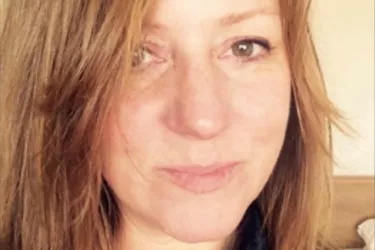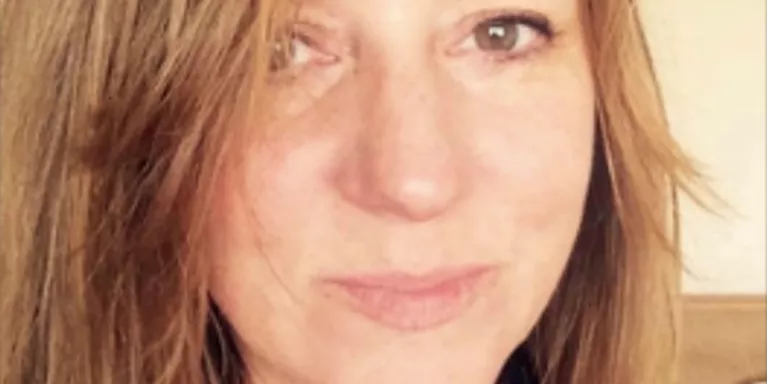PMDD: my lightbulb moment
It took Eleanor almost 30 years to get a diagnosis, but once she found out what PMDD was, everything made sense.
Eleanor Ibi is a 49 year old married mother of three boys and a stepson. She works at Manchester Metropolitan University's Student's Union, as their Governance and Admin Manager.
I am 49 years old and in 2017 I was diagnosed with PMDD (premenstrual dysphoric disorder). PMDD is commonly defined as an endocrine disorder, meaning that it is a hormone-related disorder. But as well as physical symptoms, people with PMDD also experience a range of different mental health symptoms such as depression and suicidal feelings. It had taken me nearly 30 years to get the diagnosis, after suffering with mental health issues most of my life, but not understanding what the problem was.
I had always thought that I had depression (my mental health issues began, looking back, in my late teens). My father had depression, and I accepted that the low moods that came and went, were just something I had to live with.
I managed to go to university, get jobs, and have relationships. Looking back, I’m not sure how I managed to function, although relationships were often volatile. I was very good at acting ‘normal’ and ‘getting on with things’. I also didn’t want to burden my family and friends with my mental health issues, when actually it was something that came and went, and when I was feeling fine, I could manage perfectly well.
Over the years, I was prescribed many different anti-depressants. Some worked really well, others not so much. I had three children, and suffered with post-natal depression. Again, SSRI’s were prescribed by doctors.
To try and help myself, I tried (in no particular order) meditation, yoga, healthy eating, vitamins and supplements, counselling, CBT, acupuncture, the Mirena coil, cold showers, the contraceptive pill (I’ve tried most of them), and exercising every day. Nothing really helped and some (Mirena) made me feel a lot worse.
In 2007, my symptoms were becoming unmanageable and I went to see my GP. I explained that I had noticed that my PMS seemed to be getting worse and I was very depressed, anxious and paranoid. She told me that all women have to deal with PMS, but reluctantly prescribed Fluoxetine after I begged her to help me. I took Fluoxetine for ten years, in the luteal phase only (the two weeks before my period) and it definitely helped me deal with my fluctuating moods.
In 2017, the Fluoxetine stopped working, and, unwilling to go to the doctor again, and be prescribed another SSRI, I decided to do some research myself. I discovered the term PMDD and had my light bulb moment. The low mood, paranoia, irrational anger, anxiety, clumsiness, migraines, suicidal ideation, inability to concentrate – but only in the 10 days/two weeks before my period – everything made sense. (Some PMDD sufferers have physical symptoms too, but mine affected my mental health). I felt so silly that I had not made this connection before. I tracked my symptoms over three months, and saw that there was a direct correlation between my monthly cycle and my mental health.
I joined several Facebook PMDD support groups, which were hugely useful for advice and sympathy. A specialist based at Rochdale Infirmary was recommend to me on one of these groups. At my first appointment with him, he confirmed that I had all the classic symptoms of PMDD. It was a huge relief to talk to a doctor who understood what I was going through, and who knew how to help me. Previously, the medical profession had failed to make any connection between my hormones and my mental health, or dismissed them as just ‘women’s problems’.
The specialist told me that if I had been younger, he would have advised me to have a hysterectomy. As it was, being 49, and peri-menopausal anyway, he gave me the Zoladex injection instead (this basically shuts down the ovaries and prevents the normal hormonal fluctuations that PMDD sufferers react badly to). I will continue to have these tri-monthly injections until I am through the menopause, when my PMDD will cease naturally.
I have good days and bad days now, but definitely more good days. It has taken me a long time to get to this point, and I wish I had made the connection between my periods and my mental health sooner. I also wish that I had met a sympathetic and knowledgeable doctor who could have helped me.
Every month, for 30 years I barely managed to come through each month intact. PMDD is not merely bad PMS. It is so much more serious than that, and is absolutely life changing. I would say to anyone suffering with mental health issues, please do consider your monthly cycle as the possible cause of them. Talk to your doctor (and if they don’t listen, ask for a different doctor) and remember that there is help out there.


Information and support
When you’re living with a mental health problem, or supporting someone who is, having access to the right information - about a condition, treatment options, or practical issues - is vital. Visit our information pages to find out more.
Share your story with others
Blogs and stories can show that people with mental health problems are cared about, understood and listened to. We can use it to challenge the status quo and change attitudes.

















